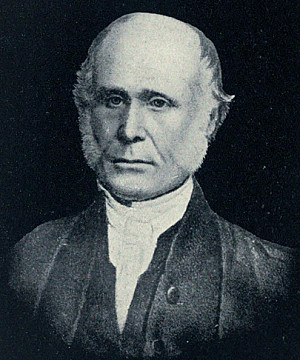Sir James Buchanan Macaulay (1793-1859)
Chief Justice The Hon. Sir James Buchanan Macaulay C.B., of Toronto
He was an Ensign in the 98th Regiment until the War of 1812, when he joined the Glengarry Fencibles as a Lieutenant and saw action at the Battles of Ogdensburg, Oswego, Lundy's Lane and at the Siege of Fort Erie. In 1815, his corps was disbanded and in 1822 he was admitted to the Bar of Upper Canada. He rose rapidly in his profession and was an Executive Councillor in the Maitland administration.
In 1829, he was appointed a Judge of the Court of Queen's Bench. In 1849, with the first establishment of the Court of Common Pleas in Upper Canada, he was appointed Chief Justice and held that position until he retired in 1856. He came out of retirement to take the position of Judge of the Court of Error and Appeal. As Chairman of the commission appointed to revise and consolidate the statutes of Lower and Upper Canada, Macaulay helped to reduce the whole statutory law of the country from the British Conquest of New France (1759) to his own time into three volumes - a work of great labour and corresponding value, which he just lived to see completed.
He was made a Commander of Bath in 1858 and knighted in 1859. He died at "Wickham Lodge" (see images), the villa he built on his father's land, named after the Hampshire village where two of his maternal aunts lived with their respective husbands: Admiral Thomas Revell Shivers and Lt-Commander Thomas Dorsett-Birchall. His home stood on a plot of 10-acres and was surrounded by violets, wild strawberries, maple trees and a dense pine forest on the Yonge Street side of the property, from where the carriages entered the long horseshoe-shaped drive. The house was roughly bounded by modern day Yonge and Bay Streets. At his death, Sir James left £40,000 to his wife.




